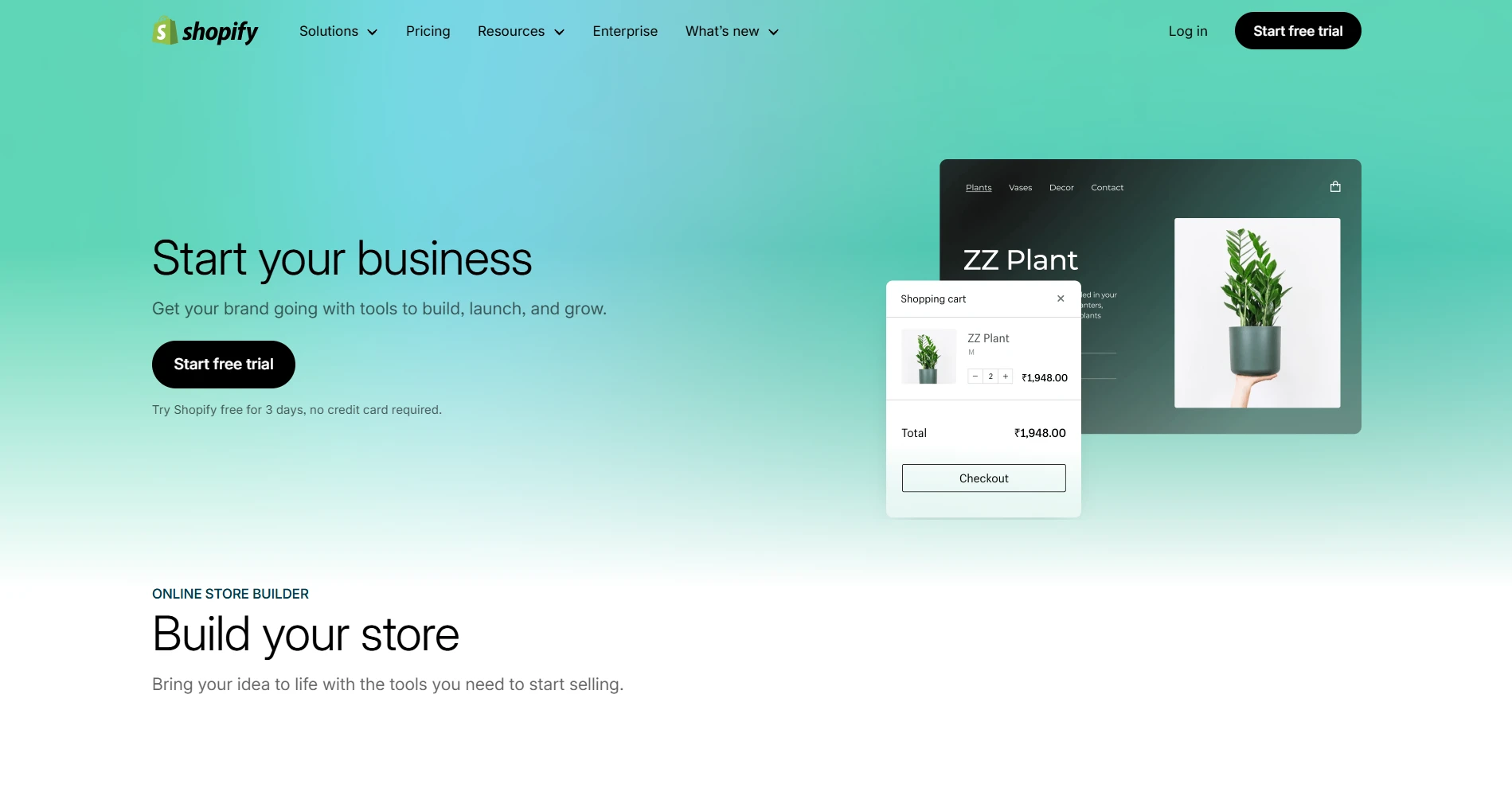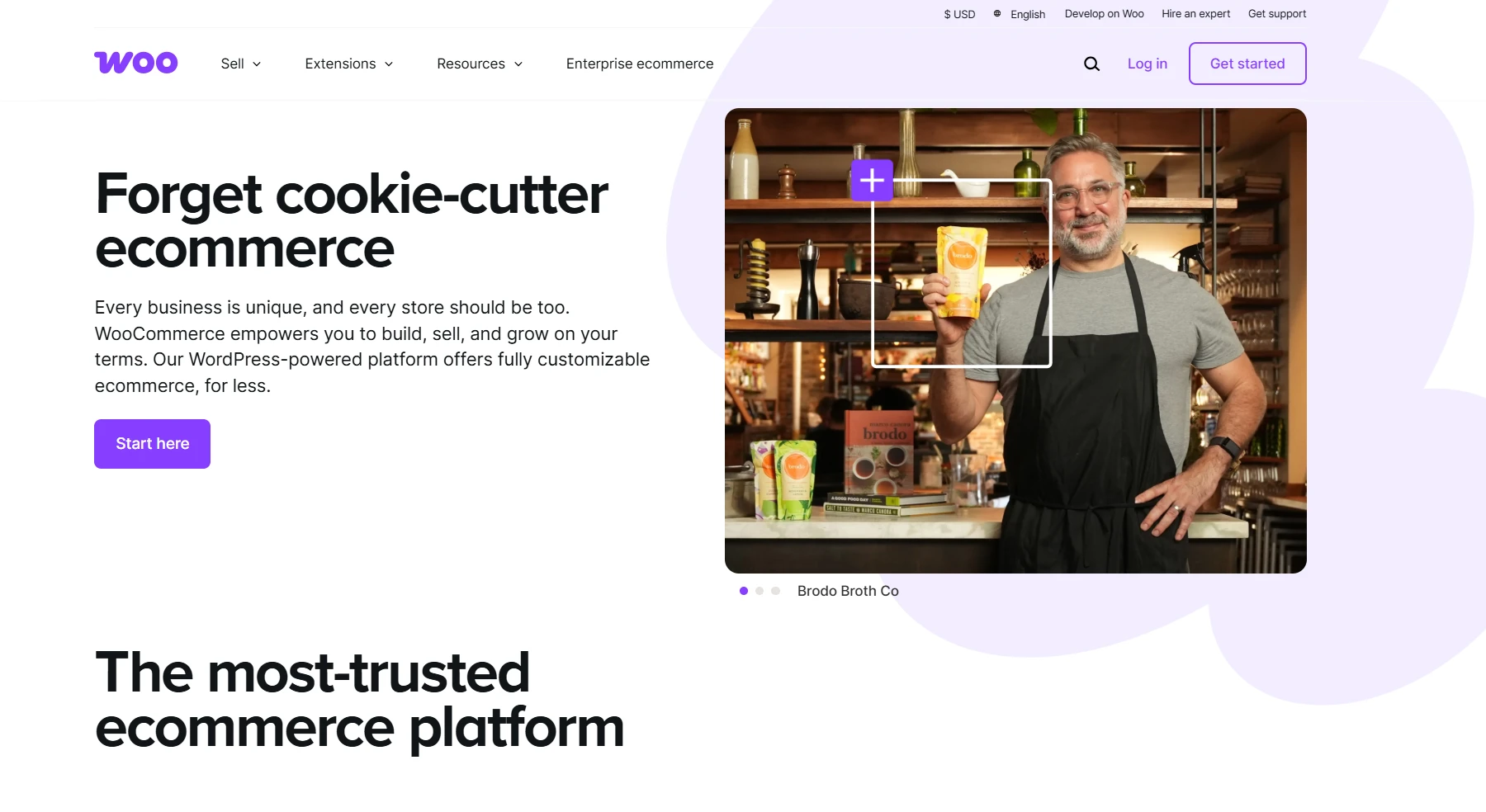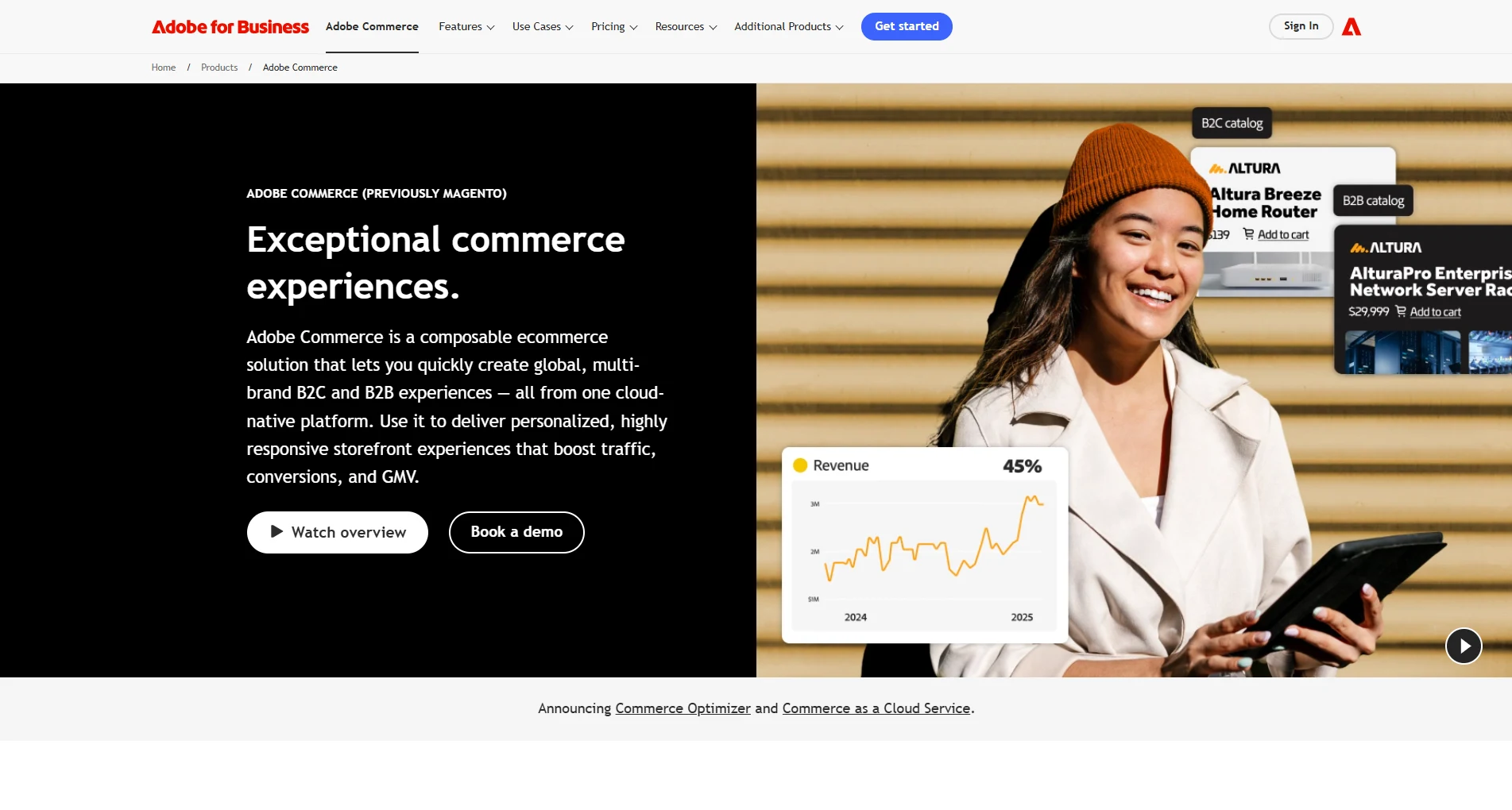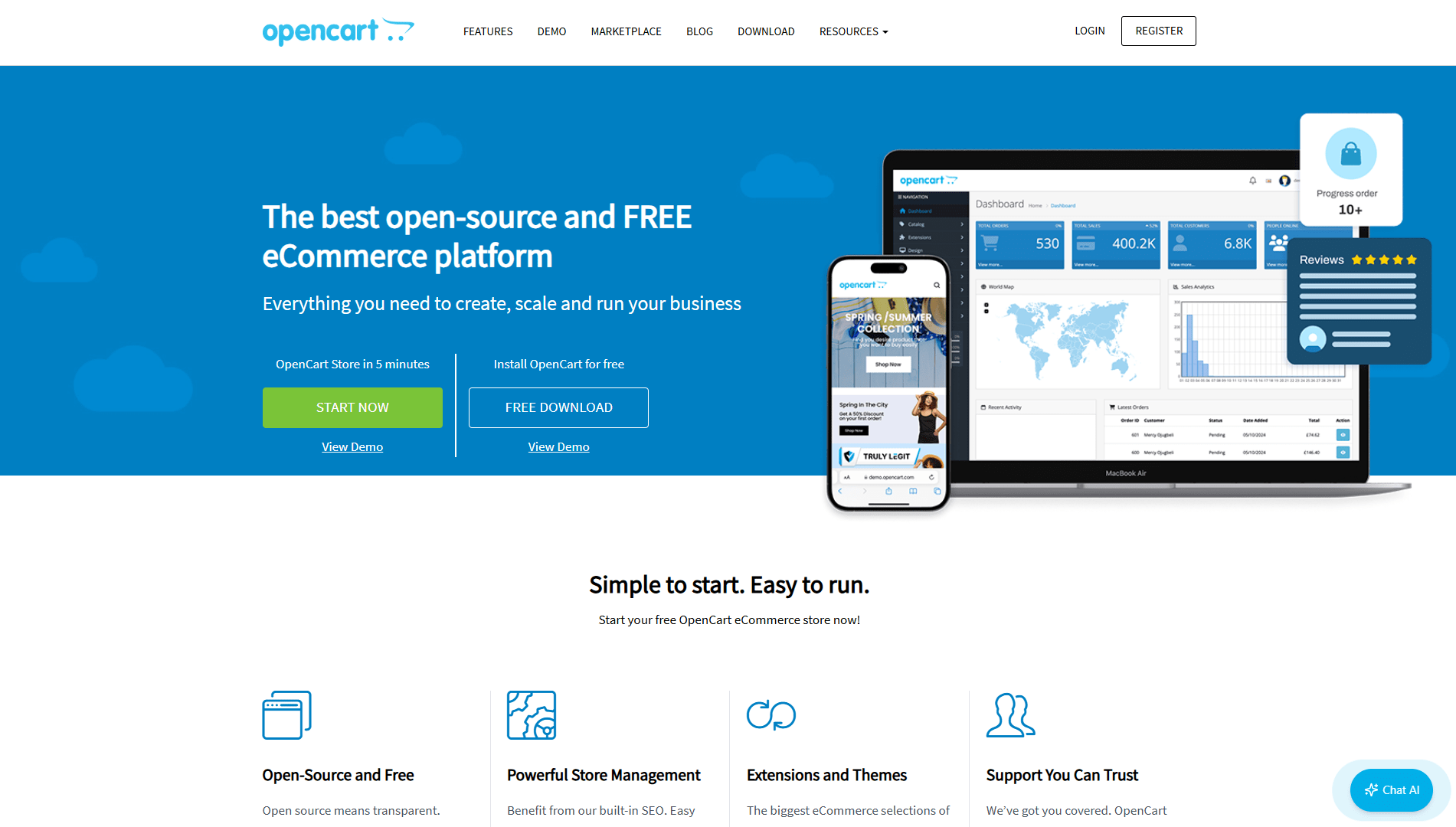Custom Engagement Solutions
Unlock tailored solutions with a free, no-obligation strategy session.
Expert Developers & Engineers on Demand
Scale Your Team with Skilled IT Professionals
Expert Guidance for Digital Transformation

This comparison guide will take a look at the top 10 best eCommerce platforms and how to evaluate which is best for your business needs.
Starting an eCommerce business is exciting. You get to choose your business name, create your logo and branding, and build your website.
And while it’s easy to consider your needs now, it’s also important to think about where your business is heading and what other tools you’ll need in the future.
An eCommerce platform is software that enables the commercial process of buying and selling over the internet.
The best eCommerce platform needs search feature that lets customers find a specific product, a cart feature that lets them manage their order, and a payment feature.
A company can choose to use an eCommerce solution hosted by an eCommerce provider like Shopify and delivered through the cloud, or they can host a custom eCommerce platform on their premises.
Mistakes companies make include not figuring out their goals in advance, not choosing the best eCommerce platform for their needs, and not paying attention to security regulations.

#1 Global Ecommerce Platform
Shopify is an all-in-one, specialized global eCommerce platform that has been powering businesses of all sizes to start, grow, and market their online stores.
Shopify has seen tremendous growth in the past few years.
With eCommerce adoption growing rigorously and more retailers moving to eCommerce platforms amidst the pandemic, Shopify Inc.’s revenue nearly doubled in the latest quarter.

Explore our Shopify development services
Best-known ecommerce plugin for eCommerce

WooCommerce is the most widely used and best-known ecommerce plugin for WordPress. Its integration offers great SEO for ecommerce websites. It is free and open-source, so you can make unlimited customizations. WordPress with WooCommerce will give you the support of the large open-source community.
You can add the WooCommerce plugin on any WordPress site to create a store. You get secure payments and configurable shipping options right out of the box.
Create websites and online store

Wix is a platform that allows you to create websites and online shops. This is something to consider before you evaluate the Wix platform as an eCommerce platform.
Wix is a website building tool. It’s great if you don’t have any technical knowledge and want an all-in one package. It is a drag-and-drop website creator that is very easy to use. Wix doesn’t require you to be a programmer.
There are over 800 professionally-designed templates available for you to use, but you cannot change templates without redesigning the site.
Leading cloud eCommerce platform

BigCommerce, a leading cloud eCommerce platform is ideal for established and growing businesses. Big Commerce combines enterprise functionality with market-leading performance and an open architecture and ecosystem.
This allows businesses to increase their online sales by around 80% in less time, cost and complexity than traditional on-premise software.
BigCommerce, an open SaaS platform for eCommerce, is the leader of a new era in eCommerce. BigCommerce offers endless possibilities for you to innovate, grow, and develop.
BigCommerce enhances B2B eCommerce for over 60,000+ small and medium-sized businesses (SMEs), approximately 2,000 mid-market businesses and industry-leading brands.
An open-source ecommerce platform

PrestaShop Are you looking for an open-source ecommerce platform that is free to start your online store? PrestaShop may be the right choice for you.
This PrestaShop review will examine its features and answer any questions you may have about the solution.
Do you want to open-source eCommerce software that will allow you to create an online store? PrestaShop could be the right platform for you. This PrestaShop review will examine its features and answer any questions you may have about the solution.
PrestaShop has recently launched the PrestaShop Ready edition, which is their Software as a Service or hosted option. This version is not open-source, but you have more control over the code to customize it.
Launch, manage, and scale your business confidently

Magento ecommerce can be a great option if you’re looking for an eCommerce platform that works. What is Magento? And why should you use it. This article will provide all the answers to your questions. Let’s get started!
Multi-channel commerce for B2B or B2C customers can be built on one platform. Our future-proof technology allows you to build a commerce platform that is flexible, extensible, and scalable.
Adobe Commerce offers powerful tools that will allow you to launch, manage, and scale your business confidently. This includes the ability to host multiple instances and cloud deployments on one platform, as well as native integrations with Adobe products such Analytics, Target, Experience Manager, and Creative Cloud to take personalisation to the next step.
eCommerce platform that anyone can use

Squarespace is an eCommerce platform that anyone can use. Squarespace has been discussed by everyone, from influencers who want to build a stronger online presence to ecommerce store owners.
There are not many resources that provide all the details about Squarespace and how it can benefit your business.
All you have to do to get started is to create an account and choose a template. Then you can begin editing the website to meet your needs.
Squarespace’s beautiful design options have made Squarespace a popular website builder in the eCommerce and selling industry.
eCommerce platform makes it easy to create a website and merchandize products

Weebly’s eCommerce platform makes it easy to create a website and merchandize products. Rich product descriptions can be created with videos and slideshows.
You can easily reorder products to maximize visual appeal. Your products can be easily shared by shoppers on Facebook, Twitter, and Pinterest.
Weebly eCommerce can be used by small- to medium-sized online shops that wish to quickly start selling online.
It doesn’t require complicated setups or ongoing maintenance. It’s easy to use for both beginners and experienced users who don’t want too many technical details.

Everything you need to build your online store
Shift4Shop provides everything you need to create an online store, from real-time shipping and payment options.
The best eCommerce platform to increase sales and visitors. Shift4Shop’s all in one software is designed for serious internet marketers. It features mobile-ready themes and the latest SEO standards.
Shift4Shop’s rich features in SEO will increase your online store’s visibility and rank higher on search engines. This will also help you to get more traffic.
Shift4Shop’s design tools allow you to create the look that you want for your store. You can choose from hundreds of optimized themes, and you are ready to go.
Top-rated open-source eCommerce platform

Are you looking for an open-source eCommerce platform with hundreds of themes and thousands of add-ons? OpenCart is the best eCommerce platform that will help you decide if it is right for you.
OpenCart is an open-source ecommerce platform that can be customized with no monthly fees. The administrator dashboard gives you a quick overview of key metrics such as sales and customers.
OpenCart, like many best ecommerce platforms is customizable and extensible. You can customize your site with more than 13,00 themes and modules.
These shops look professional and scale well. They also provide admins with many features, including support for more than 20 payment methods.
OpenCart is arguably more user-friendly than osCommerce and has a much more elegant appearance.
Choosing the right eCommerce platform depends on what you need and how much you’re willing to spend. If you’re just starting, free tools might be enough.
For larger stores or those needing more control, paid options like Shopify, BigCommerce, or Adobe Commerce offer more features.
Take time to compare your priorities—like ease of use, payment setup, and support.
The best platform is the one that fits your goals and helps you sell with less stress.
Shopify is the best for most users because it’s easy to use, flexible, and works well with many tools.
Shopify is the most successful platform, powering millions of stores and handling billions in online sales every year.
No platform beats Shopify overall, but WooCommerce suits those who prefer full control and already use WordPress.
Yes, Shopify is worth the cost for anyone who wants a reliable, easy-to-manage store with helpful support.
Square Online offer free plans, making it the cheapest options for small stores with basic needs.
Projects delivered in 15+ industries.
95% retention rate, building lasting partnerships.
Serving clients across 25+ countries.
60+ pros | 10+ years of experience.